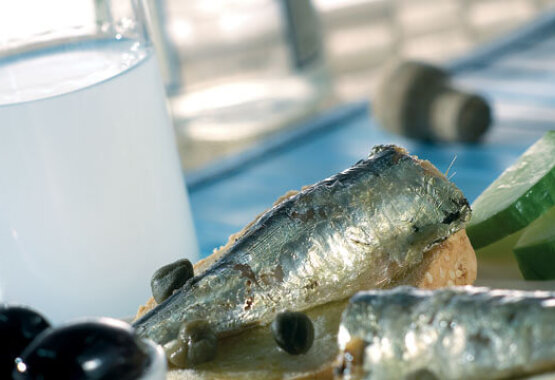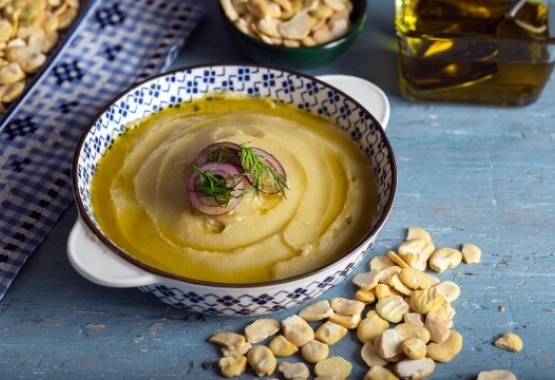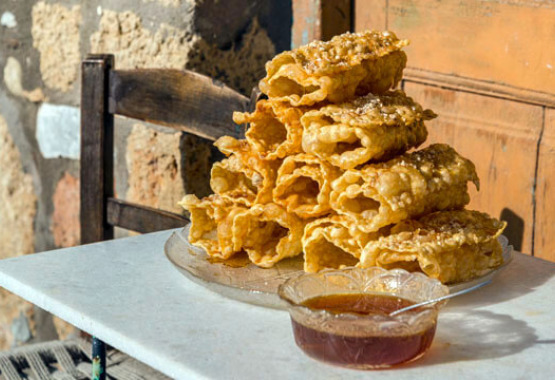
AROUND GREECE
When Otto, the first king of Greece, settled in the country in 1833, he brought with him scientists and beer specialists from Bavaria – his native land, with a view to boosting the domestic beer industry. So, in 1840, according to reliable sources, the first manually operated brewery was set up in Greece, to cater for the needs of the Bavarian officials and military men who were stationed in the country at the time.
However, it is not quite clear who among Melcher, Fischer, Waweck and Seel was the first to run this particular brewery, as they had all opened up beer businesses during the 1840’s in Athens. Ioannis Fix (Fuchs) came to Greece in 1850; he stayed and worked as an apprentice in Melcher’s brewery which he bought from his heirs in 1866. He is the maker of one of the best and oldest Greek beers. The factory he built in 1893 was later enlarged by his son Karl. On the site of the old installations a newer building was constructed which still stands in present-day Syngrou Ave. Works are currently under way to house the National Museum of Contemporary Art in the premises.
Breweries in other parts of the country were also created by Greek beer makers, such as Lorentzos Mamos who opened his business in Patras (1876); others followed, namely K. Lampros, Damianos, Kostis and M. & E. Klonaridis Bros in Athens, Stelios Tsokaropoulos in Piraeus and Mangiolos-Karampetsos and Petros Mamos – the first Greek certified beer maker – in Patras.
Another modern – for its time - brewing facility was set up in 1892 in Thessaloniki by Josef Misrachi and Solomon Fernandez. In time, factory installations grew bigger and its name was changed to Olympus Brewery. Later on it got merged with Naoussa Brewery, thus creating the Olympus-Naoussa Brewery. In 1928, the Fix Company absorbed it. The brewery was kept running until the mid-80s when it was finally closed down.
The perfect accompaniment for your meal
As soon as you try it, you will find that apart from being very tasty, the variety and body of Greek beer clearly differentiates it from the standard choice of “non-alcoholic refreshment”. This means that as an accompaniment to a meal it will pass the test with flying colours.
Greek beer will allow more successful combinations with food than wine does, it will accompany many tasty Greek dishes and mezedes [titbits].
There are tasty combinations which bring out the flavour of beer, and beers which enhance the gastronomic relish of certain dishes. The following have passed our taste test:
• Charcuterie next to dark-coloured beers
• Fish and seafood or roast and grilled meat next to a pilsner or a golden lager
• Chicken next to a lager beer
• Veal next to an ale
• Salads and grilled vegetables next to a Weiss
• Mouth-watering ladera (vegetables or pulses cooked in olive oil) typical of the Greek cuisine, pasta, and hors d’ oeuvres such as eggplant salad will have a red beer as an accompaniment.
Last but not least, Premium beer is a special category in itself as it is quite a particular type with regard to taste, aroma, alcohol content, complexity, shelf life, and gourmet combinations. Usually an evening drink, it is consumed from autumn until the first warm months; it is the right choice of drink for a full-course dinner but you can also enjoy it on its own during a night out.
Bottoms up!
Zythos – The Greek Beer
Hippocrates, the father of medicine, considered beer to have valuable medicinal qualities. Homer gives us a vivid description of how Alkinoos, king of Phaeacians, kept in his palace gold and silver kraters filled with wine made of barley (beer). Zythos, the greek word for beer, also comes up in texts of the ancient Greek geographer Strabo as well as of the ancient Greek historian Diodorus (from Sicily). The word comes from the verb zeo which means to boil and it appears that zythos was the name of an Egyptian drink made of barley.How was the first modern Greek beer born?
When Otto, the first king of Greece, settled in the country in 1833, he brought with him scientists and beer specialists from Bavaria – his native land, with a view to boosting the domestic beer industry. So, in 1840, according to reliable sources, the first manually operated brewery was set up in Greece, to cater for the needs of the Bavarian officials and military men who were stationed in the country at the time.
However, it is not quite clear who among Melcher, Fischer, Waweck and Seel was the first to run this particular brewery, as they had all opened up beer businesses during the 1840’s in Athens. Ioannis Fix (Fuchs) came to Greece in 1850; he stayed and worked as an apprentice in Melcher’s brewery which he bought from his heirs in 1866. He is the maker of one of the best and oldest Greek beers. The factory he built in 1893 was later enlarged by his son Karl. On the site of the old installations a newer building was constructed which still stands in present-day Syngrou Ave. Works are currently under way to house the National Museum of Contemporary Art in the premises.
Breweries in other parts of the country were also created by Greek beer makers, such as Lorentzos Mamos who opened his business in Patras (1876); others followed, namely K. Lampros, Damianos, Kostis and M. & E. Klonaridis Bros in Athens, Stelios Tsokaropoulos in Piraeus and Mangiolos-Karampetsos and Petros Mamos – the first Greek certified beer maker – in Patras.
Another modern – for its time - brewing facility was set up in 1892 in Thessaloniki by Josef Misrachi and Solomon Fernandez. In time, factory installations grew bigger and its name was changed to Olympus Brewery. Later on it got merged with Naoussa Brewery, thus creating the Olympus-Naoussa Brewery. In 1928, the Fix Company absorbed it. The brewery was kept running until the mid-80s when it was finally closed down.
The perfect accompaniment for your meal
As soon as you try it, you will find that apart from being very tasty, the variety and body of Greek beer clearly differentiates it from the standard choice of “non-alcoholic refreshment”. This means that as an accompaniment to a meal it will pass the test with flying colours.
Greek beer will allow more successful combinations with food than wine does, it will accompany many tasty Greek dishes and mezedes [titbits].
There are tasty combinations which bring out the flavour of beer, and beers which enhance the gastronomic relish of certain dishes. The following have passed our taste test:
• Charcuterie next to dark-coloured beers
• Fish and seafood or roast and grilled meat next to a pilsner or a golden lager
• Chicken next to a lager beer
• Veal next to an ale
• Salads and grilled vegetables next to a Weiss
• Mouth-watering ladera (vegetables or pulses cooked in olive oil) typical of the Greek cuisine, pasta, and hors d’ oeuvres such as eggplant salad will have a red beer as an accompaniment.
Last but not least, Premium beer is a special category in itself as it is quite a particular type with regard to taste, aroma, alcohol content, complexity, shelf life, and gourmet combinations. Usually an evening drink, it is consumed from autumn until the first warm months; it is the right choice of drink for a full-course dinner but you can also enjoy it on its own during a night out.
Bottoms up!




